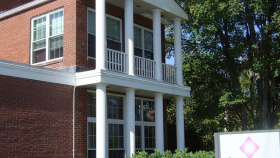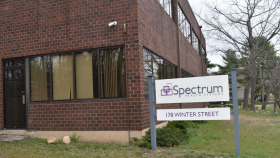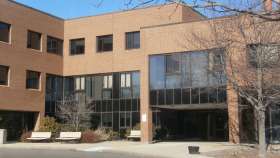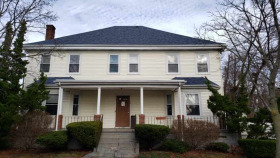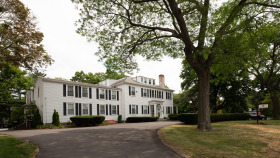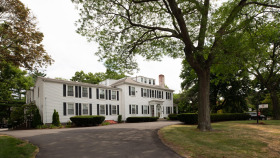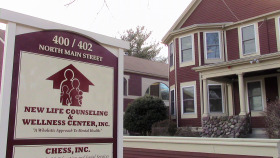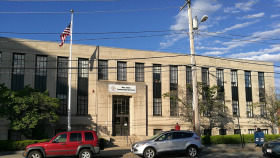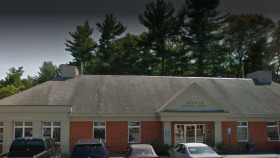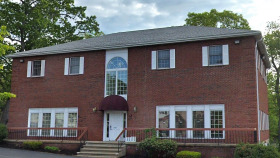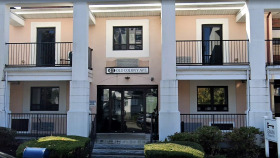Alcohol and Drug Use Statistics in Weymouth, Massachusetts
Data provided by local and federal agencies shows the number of people that are affected by drugs and alcohol each year in Weymouth:1,3,4
- The rate of people that overdosed on illicit drugs in 2020 was 104.9 deaths per 100,000 residents
Levels of Substance Abuse Care
Several levels of care are available for addiction treatment, based on types of needs.
Alcohol and Drug Detoxification
Detox occurs under medical supervision at a hospital, residential, or outpatient facility. It is the process of safely and comfortably removing drugs or alcohol from your system. Once detox is complete, you can transition to the next step of treatment.
Inpatient Drug and Alcohol Rehab
Inpatient or residential treatment involves staying at the rehab facility to receive 24/7 supervised care. Treatment interventions in this setting typically include individual and group therapy, recreational therapy, nutritional counseling, and medication.
Partial hospitalization programs (PHPs)
Massachusetts residents who participate in a PHP live at home while receiving treatment services at a hospital. Treatment often includes many of the same methods as inpatient care, but you return home during non-treatment hours.
Intensive Outpatient Programs (IOPs)
IOPs allow Massachusetts residents to attend counseling sessions several days a week while spending the rest of their time at home, at work, or fulfilling other obligations.
Standard Outpatient
Standard outpatient care is the least intensive treatment option. It involves one to two hours of treatment per week. Highly motivated people with a strong support system are good candidates for this level of treatment.
Relapse Prevention
Also called aftercare, relapse prevention is for Massachusetts residents who have completed a rehab program. It includes ongoing support such as 12-step groups, SMART recovery, and therapy.
How to Pay for Substance Addiction Treatment in Weymouth, Massachusetts
Private Insurance
Every insurance provider is required by law to cover substance abuse and mental health treatment services to some extent. Contact your provider to learn about the specific coverage they offer, which varies by company.
Massachusetts Medicaid
In Massachusetts, Medicaid and the Children’s Health Insurance Program (CHIP) are rolled into one program, called MassHealth. MassHealth members may be able to cover the cost of rehabilitation treatment services through this government-funded program. Massachusetts residents must apply for benefits, and the treatment provider must accept MassHealth as a method of payment.
Massachusetts Medicare
Massachusetts Medicare is a program funded by the government to provide coverage for Massachusetts residents who are 65 or older, have been on Social Security Disability Insurance for two years, or have end-stage renal disease or Lou Gehrig’s disease. Medicare covers the cost of addiction treatment services; however, some rehab facilities don’t accept Medicare methods of payment, so always check before enrolling in treatment.
Sliding Scale Rehabs
Sliding scale rehab programs charge fees based on income, so you only pay what you can reasonably afford. To qualify for sliding scale rehab in Massachusetts, you may have to provide proof of income.
TRICARE in Massachusetts
Massachusetts TRICARE (North region) is a program funded by the government to provide health insurance coverage for military personnel, veterans, and their families. TRICARE covers addiction treatment services for these individuals.
IHS-Funded Drug Rehabs
Indian Health Services drug rehabs offer addiction treatment free of charge for Indigenous people and Alaskan Natives. This coverage is provided even if other insurance is available.
Traveling to and Within Weymouth, Massachusetts
History lovers rejoice, Weymouth is a panacea of Americana lore, centuries-old architecture, and stockholders of knowledge, like the Tufts Library, founded in 1879. Here is some info about Weymouth, such as how to get here:
- The nearest airport, Boston Logan International (BOS) is 25 minutes north of Weymouth Town, and there is public transportation available on the MBTA SilverLine, though that route takes around an hour. There are also taxis and airport shuttles that could give you a ride if you want to save time and don’t have a vehicle.
- The MBTA (Massachusetts Bay Transportation Authority) operates dozens of cross-city bus routes with daily service and reduced fares available for seniors, people with disabilities, and school-age kids in the area.
- Shopping and dining are abundant in Weymouth, such as at one of the 15 malls and shopping outlets, such as the Weymouth Shopping Center with dozens of stores, a movie theater, and fine and casual dining.
- Weymouth is home to three public libraries and twelve different museums, including the Museum of Zoology’s Snake Conservation and Applied Research Facility, and the Bare Cove Fire Museum.
Massachusetts Alcohol and Drug Laws
Policy makers in Massachusetts have enacted the following laws related to alcohol and drug use and possession:1,2,3,4,5
9-1-1 Good Samaritan Law: Passed in Massachusetts in 2012, this law states that anyone who calls 9-1-1 for an overdose emergency will not be charged with possession of a controlled substance. The policy was created to encourage people to get emergency help during overdose situations.
Naloxone Standing Order: The Massachusetts Act for Prevention and Access to Appropriate Care and Treatment of Addiction allows pharmacies to dispense Naloxone, without a prescription, to anyone at risk of opioid overdose and to others who are in a position to assist those at risk.
Marijuana Decriminalization: As of 2016, recreational use of marijuana is legal in Massachusetts for adults 21 years and older. Adults can have up to one ounce on their person and 10 ounces in their home, but any amount over one ounce must be kept locked up, and marijuana cannot be used in public or on federal property. Residents of Massachusetts can also grow up to six cannabis plants for single-adult households or 12 plants for larger households.
Zero Tolerance Law: In Massachusetts, the legal BAC for drivers under 21 years of age is 0.02% instead of 0.08%. Violation of this law can result in up to three years of license suspension, 2.5 years in prison, up to $5,000 in fines, and a suspended license.
Drug Classes: To establish criminal penalties for violation of drug law, Massachusetts has established five classes of controlled substances. Class A includes opioids. Class B includes cocaine. Class C includes some narcotics. Class D includes marijuana. Class E includes narcotics that contain additional substances.
Resources
- Center for Disease Control. (2022). CDC Wonder Tool.
- Substance Abuse and Mental Health Services Administration. (2022). Treatment Locator Map.
- Massachusetts Department of Public Health. (June 2022). Number of Opioid-Related Overdose Deaths, All Intents by City/Town, 2015-2021.
- Center for Disease Control. (2022). U.S. County Opioid Dispensing Rates, 2020.

